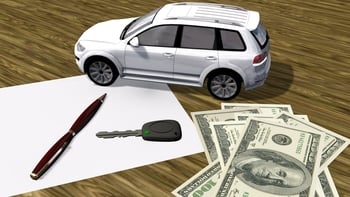
I bought my first car in 1982. Although I had graduated high school and had two years of college, I was financially naïve. I had never learned how to set a budget or how to manage credit. I was, in that sense, very much like many consumers today. Fortunately, the marketplace for car shopping in 1982 was much safer for inexperienced consumers than it is today.
Sure, car dealers were playing their games even then. And, I fell victim to some of their tricks. But car dealers had not yet developed the techniques that would enable them to further exploit the vulnerable through the financing process. Prior to banking deregulation, banks were conservative lenders. For the most part, it was not possible for a consumer to be approved for a loan that that they could not afford to repay. If a borrower didn’t make the payment, the bank would suffer a loss. And, banks hate losses. So, they did not extend credit unless the consumer was able to clearly demonstrate an ability to make the payments.
Today, that is no longer the case. Car dealers, finance companies, and banks have developed ways to profit even if the consumer cannot afford the payments. On major subprime finance company that works with thousands of car dealerships nationwide manages to collect only about two-thirds of the money borrowed by consumers. About a third of the cars are repossessed. Despite this apparently dismal collection record, this company earned profits of $574 million in 2018. Many other players in the auto finance business similarly profit, although on a smaller scale, by selling cars and extending credit to consumers who cannot afford to make the payments.
How do they do it? One way is by playing many of the games discussed in this book such as selling low quality cars at inflated prices and packing the deals with high-priced add-ons that give consumers little to no additional value. Little is invested in the cars, and payments are missed, the cars are repossessed and sold to another unfortunate buyer. Those who do make the payments overpay by so much that any losses are covered by the huge profits.
Sometimes car dealers will cause a consumer to get into an unaffordable loan by engaging in credit application fraud; dealers frequently lie on the credit applications and tell the banks that a consumer earns more money that their true income. The dealer profits from the sale with little regard to what happens when a consumer can’t afford the payments. And, some banks and finance companies don’t look too hard for credit application fraud, because they profit by securitizing the loans and selling them to investors, who think that they are better credit risks than they really are.
If this sounds familiar, it is because similar “games” in the subprime mortgage industry nearly wrecked the economy and caused the Great Recession in 2008. I had a front-seat to that wreckage as a member of the Connecticut Governor’s Task Force on the Subprime Mortgage Industry just before that collapse. It pains me to see that the same conduct remains prevalent in the auto finance industry more than a decade later.
So, it is very easy for a consumer to get a car loan that they cannot afford today. We can no longer be confident that we can afford a loan just because our credit application was approved. Today’s car buyers must set a budget for themselves.
Obviously, any budget should take into account all of a consumer’s expenses and include money for contingencies and unexpected expenses. A good budget will also include money for savings. Many financial experts recommend that car payments should be no more than 10% of your monthly salary (before taxes). So, someone working 40 hours a week and earning $20 an hour would have monthly income of about 3,500 and could probably afford a car payment of about $350/month.
Other financial advisors recommend that consumers avoid car payments altogether. They suggest that consumers should pay cash for an inexpensive used car, set aside the money that would otherwise go to payments, and buy a nicer car with cash after enough is saved. I agree with this approach, especially for someone who does not have good credit.
Ultimately, it is up to each consumer to decide whether to finance a car purchase. One thing is clear: A smart buyer should decide how much they can afford for a car payment, and they will not allow a car dealership to set their budget when car shopping.
